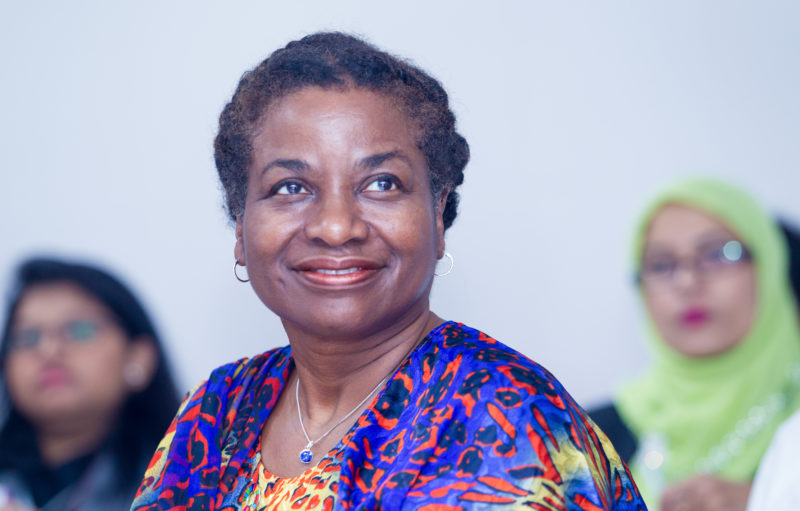The UN Population Fund (UNFPA) says it has conducted more than 100,000 surgical repairs on Nigerian women and girls who suffered Obstetric Fistula (VVF) in the last 15 years. The agency said that more than 18,000 of such surgeries were carried out in 2017 alone.

Dr Natalia Kanem, the Executive Director, UNFPA, made this known in a statement issued on Tuesday, May 23, 2018 in Abuja to commemorate the 2018 International Day to End Obstetric Fistula.
Kanem said that UNFPA had led the campaign to end the scourge in partnership with nearly 100 agencies around the global and hundreds of others at the national and community levels.
“Since 2003, UNFPA the leader of the global campaign to end fistula, has, with its partners supported nearly 100,000 live-transforming surgeries to heal the physical and psychological wounds of fistula survivors.
“Over the last 15 years, UNFPA has directly supported more than 100,000 surgical repairs for women and girls, with more than 18,000 surgeries in 2017 alone.
“It is time we end the needless suffering caused by fistula in keeping with the 2030 Agenda and the Sustainable Development Goals.
“Let us commit to putting the furthest behind first and ensuring human rights, well-being and dignity for all.
“UNFPA is committed to ending fistula within a generation, and we call upon the world to join us in this bold endeavour,’’ she said.
The executive director said that on daily basis, more than 800 women die from pregnancy-related complications globally.
She added that fistula had been virtually eliminated in developed nations, but it was estimated that more than two million women and girls bear the scourge in developing nations.
Kanem said that fistula was preventable and, in most cases, can be repaired surgically, with estimates showing that between 50,000 and 100,000 new fistula cases occur annually.
She said the 2018 International Day to End Obstetric Fistula, observed on May 23, has a theme “Leaving no one behind: Let us commit to ending fistula now!”
She urged countries and the international community to significantly step up efforts to ensure that every potential new case of fistula was prevented.
She also urged key stakeholders to ensure that every woman or girl suffering from fistula is treated and receives adequate follow-up, social reintegration and rehabilitation support.
“In this way, in the spirit of the Sustainable Development Goals (SDGs), we can reach those `furthest behind’ and achieve `hope, healing and dignity’ for all,” she said.
Kanem said that eliminating fistula was a key element of “leaving no-one behind.
“Thus, it is critical to integrate fistula into the national-level planning for the SDGs.
“UNFPA should take every opportunity to incorporate fistula into national-level planning to achieve the SDGs, including countries’ targets and indicators under the SDGs,’’ she said.
By Mustapha Yauri
